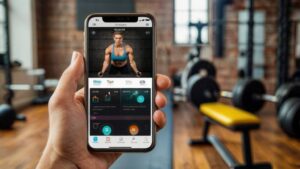AI in Nutrition: The Future of Nutrition

Artificial intelligence (AI) is transforming various sectors, and nutrition is no exception. By harnessing the power of AI, we are revolutionizing the way we understand, approach, and manage healthy eating. This article explores the integration of AI in nutrition, its applications, challenges, and the promising future it holds.
What is AI, and How is it Applied in Nutrition?
AI, or artificial intelligence, refers to the simulation of human intelligence by machines, particularly computer systems. In the field of nutrition, AI is applied to analyze vast amounts of nutritional data, predict dietary outcomes, and provide personalized recommendations for healthier eating. By utilizing machine learning and deep learning algorithms, AI can process complex information related to human nutrition and offer tailored dietary advice.
Key Technologies Behind AI in Nutrition
The technologies driving AI in nutrition include machine learning, natural language processing, and neural networks. Machine learning algorithms analyze patterns in nutritional data, while natural language processing enables AI systems to understand and interpret human language related to dietary habits. Neural networks, especially convolutional neural networks, are used to model and predict complex nutritional scenarios, such as the impact of diet on chronic conditions like obesity and type 2 diabetes.
How Does AI Analyze Nutritional Data?
AI systems analyze nutritional data by processing large datasets that include information about food composition, individual health records, and dietary patterns. These systems can identify trends, such as nutrient deficiencies or excesses, and predict potential health risks like cardiovascular disease or cancer. By integrating data from various sources, AI provides a comprehensive understanding of how diet affects overall health and well-being.
The Role of Machine Learning in Dietary Recommendations
Machine learning plays a crucial role in generating dietary recommendations. By continuously learning from new data, AI systems can refine and improve their recommendations over time. This adaptive capability allows for the creation of personalized nutrition plans that take into account an individual’s unique health profile, dietary preferences, and lifestyle factors.
How Can AI Personalize Nutritional Plans?
Personalized nutrition is one of the most significant benefits of AI in the field of nutrition. AI can create customized meal plans by considering a wide range of factors, including genetic makeup, metabolic rates, and personal health goals.
Factors Considered by AI
AI systems consider various factors when designing personalized meal plans.
These include:
Health conditions: AI takes into account chronic conditions like diabetes or hypertension that require specific dietary adjustments.
Dietary preferences and restrictions: AI adapts to individual preferences, such as vegetarianism, veganism, or food allergies.
Nutritional needs: AI assesses the nutritional requirements based on age, gender, activity level, and health status.
Adapting to Preferences and Restrictions
AI excels at adapting to individual dietary preferences and restrictions. For example, it can suggest plant-based alternatives for someone following a vegan diet or recommend low-carb options for those managing diabetes. By using AI, individuals can receive meal plans that are not only nutritionally balanced but also aligned with their personal tastes and health needs.
Benefits of AI in Personalized Nutrition
The use of AI in personalized nutrition offers several benefits:
Efficiency: AI can quickly analyze vast amounts of data to provide tailored recommendations, saving time for both dietitians and patients.
Accuracy: By leveraging data-driven insights, AI enhances the accuracy of dietary advice, reducing the risk of nutrient imbalances.
Sustainability: Personalized nutrition plans created by AI can promote sustainable eating habits, reducing the likelihood of long-term health issues.
What Are the Current Applications of AI in Nutrition?
AI is already making significant strides in the field of nutrition through various applications that enhance meal planning, food tracking, and product development.
AI-Powered Apps Transforming Meal Planning
AI-powered apps are revolutionizing meal planning by offering personalized recipes, shopping lists, and nutritional analysis. These apps use machine learning algorithms to suggest meals that align with an individual’s dietary preferences and nutritional goals. Some apps even integrate with wearable devices to monitor physical activity and adjust meal plans accordingly.
Role of AI in Food Tracking and Monitoring
AI also plays a critical role in food tracking and monitoring. By using AI-driven tools, individuals can log their food intake, track calories, and monitor nutrient consumption with greater accuracy. AI can analyze this data to provide feedback on dietary habits, helping users make informed decisions about their food choices.
AI in Food Product Development
In the food industry, AI assists in developing new food products that meet specific nutritional needs. For example, AI can analyze consumer preferences and health trends to create products that cater to the growing demand for plant-based or low-sugar options. By optimizing recipes and formulations, AI helps manufacturers produce healthier and more appealing food products.
What Challenges Does AI Face in the Field of Nutrition?

Despite its potential, AI in nutrition faces several challenges that must be addressed to ensure its effectiveness and ethical use.
Ethical Concerns in Dietary Recommendations
One of the primary ethical concerns with AI in nutrition is the potential for bias in dietary recommendations. If AI systems are trained on biased data, they may produce recommendations that are not suitable for all individuals. Ensuring diversity and inclusivity in the datasets used to train AI models is crucial to addressing this issue.
Data Privacy and AI in Nutrition
Data privacy is another significant challenge. AI systems require access to personal health information to provide accurate recommendations, raising concerns about how this data is stored, shared, and protected. Strict privacy regulations and transparent data management practices are essential to maintaining trust in AI-driven nutrition solutions.
Limitations in Understanding Human Nutrition
AI, despite its capabilities, still has limitations in understanding the complexities of human nutrition. While AI can analyze data and identify patterns, it may not fully capture the nuances of individual health needs or cultural dietary practices. Human expertise, particularly from dietitians and nutritionists, remains indispensable in interpreting AI-generated insights and providing holistic dietary guidance.
How is AI Enhancing Nutritional Education and Awareness?
AI is playing an increasingly important role in nutritional education and awareness by providing tools that educate the public, combat misinformation, and train nutrition professionals.
Tools for Public Education
AI-driven tools, such as chatbots and virtual nutritionists, are being used to educate the public about healthy eating. These tools provide instant access to reliable nutritional information, answer questions, and offer personalized advice, making nutrition education more accessible to a broader audience.
Combating Misinformation with AI
Misinformation about nutrition is rampant, particularly on social media. AI can help combat this by identifying and correcting false or misleading information. Through natural language processing, AI systems can analyze online content, flag inaccuracies, and provide evidence-based alternatives, helping to improve public understanding of nutrition.
Training Nutrition Professionals
AI is also used in the training and continuing education of nutrition professionals. AI-powered platforms offer interactive learning experiences, simulate real-life scenarios, and provide up-to-date research findings, helping dietitians and nutritionists stay informed about the latest developments in the field.
What is the Future of AI in Nutrition?
The future of AI in nutrition is filled with possibilities, from advancements in technology to new applications that will further revolutionize how we approach healthy eating.
Advancements in AI and Nutrition
As AI technology continues to evolve, we can expect more sophisticated tools that offer even greater precision in dietary recommendations. Innovations such as explainable AI will allow users to understand how AI arrives at its conclusions, increasing trust and transparency in AI-driven nutrition solutions.
Innovations in AI-Driven Nutrition Solutions
Future innovations may include AI systems that can predict how specific foods will affect an individual’s health over time, allowing for proactive dietary adjustments. Additionally, AI could integrate with genetic data to offer even more personalized nutrition plans based on an individual’s genetic predispositions.
Ensuring Responsible Use of AI in Nutrition
To ensure the responsible use of AI in nutrition, it is vital to establish clear ethical guidelines and regulatory frameworks. These should address issues such as data privacy, bias, and the potential for AI to be used in ways that could harm public health. Collaboration between AI developers, nutrition experts, and policymakers will be key to achieving this goal.
Conclusion
AI is revolutionizing the field of nutrition by providing personalized dietary recommendations, enhancing meal planning, and supporting nutritional education. While challenges such as ethical concerns and data privacy need to be addressed, the potential benefits of AI in nutrition are immense. As technology advances, AI will continue to play a crucial role in promoting healthier eating habits and improving public health outcomes. By embracing AI in a responsible and ethical manner, we can unlock new opportunities to enhance human nutrition and well-being.
https://7thavewellnessblog.com/?p=5238
https://www.ncbi.nlm.nih.gov/
FAQs
Q: How is artificial intelligence transforming the field of clinical nutrition?
A: Artificial intelligence is revolutionizing clinical nutrition by enhancing dietary assessments and enabling personalized nutrition recommendations. AI algorithms can analyze vast amounts of nutrition research data to identify trends and patterns, improving the quality of dietary interventions.
Q: What are some AI applications in nutrition research?
A: AI applications in nutrition research include the use of artificial intelligence chatbots for dietary counseling. Mobile apps for tracking food intake, and AI models that analyze food images to provide accurate nutrition information. These tools help tailor dietary advice to individual needs.
Q: Can AI improve the quality of food safety and dietary nutrition?
A: Yes, AI can enhance food safety by monitoring food quality and detecting potential hazards in food items. Additionally, it aids in dietary nutrition by providing precision nutrition recommendations that consider individual health profiles and dietary preferences.
Q: How do AI algorithms contribute to personalized diet planning?
A: AI algorithms analyze individual dietary habits and health data to create tailored meal plans that align with specific health goals. This approach for personalized nutrition not only considers taste preferences but also factors in nutritional requirements based on clinical nutrition guidelines.
Q: What role do artificial intelligence models play in nutrition counseling?
A: Artificial intelligence models can assist nutrition counselors by providing data-driven insights into a client’s dietary habits and preferences. This enables more effective nutrition counseling sessions. Allowing professionals to offer personalized advice that is based on solid research.








